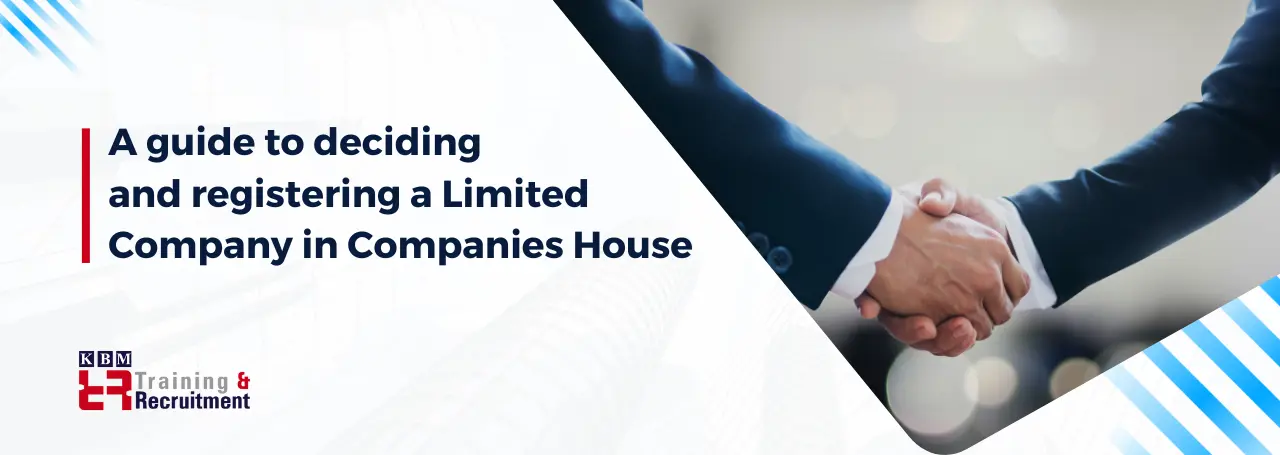Deciding on your business turning into a Limited Company is not straightforward. A Sole Trader business has no legal distinction between you and your business responsible for debts and other liabilities.
The Limited Company take your business as a separate legal entity. Your responsibility is not derivable from any company debts. The Companies House retains and publishes the Limited Company's earnings and details, which does not apply to Sole Traders.
Registering your business as a Limited Company defines how HMRC perceives it and potentially your clients and contacts. It marks the start of a new working way.
So, thinking about a Limited Company becomes a significant point. Also, it would help if you consider various other factors when taking your business forward. This article will overview the essential things and help you understand company registration steps.
Sole Trader and Limited Company differences
The Sole Trader business structure is simple, making you solely responsible for debt, taxes and all other business decisions. Registering as a Sole Trader means informing HMRC that you are a self-employed individual working alone.
A Limited Company legally individually separates your business, and your tax affairs, public transparency, and liability will change. The glaring differences between a Solder Trade and a Limited Company are:
- Tax status: Reaching a specific income level might make you feel the financial sense of registering a Limited Company. A Limited Company pays Corporation Tax. The Corporation Tax rate is lower than Income Tax. Furthermore, a Limited Company offers advantages like tax-deductible costs and allowances, which are not for Sole Traders.
- Liability: As a Limited Company owner, you have less individual liability. When you are Solder Trade, you become liable for your business if it accumulates debt. However, the authorities can still pursue your Directorship for your alleged wrongdoing.
- Public record: Limited Company registration requires you to publicise your documents, like earnings and other detail to the public. It is a requirement that private limited and public companies must submit their accounts to Companies House UK. On the other hand, Sole Trader businesses enjoy a greater privacy degree.
Should I need to register my business as a Limited Company?
Consider your business's specific future goals and circumstances while deciding whether to register as a Limited Company or not. A Limited Company becomes useful when your business capital and size grow. It provides limited liability and protection on affairs like:
- Greater tax efficiency
- Personal assets
- Rights to your registered name
On the other hand, some drawbacks include:
- Director role's legal responsibilities
- Public transparency
- Extra paperwork
How to register with Companies House?
Gov.UK website offers online registration for converting Sole Trader business into a Limited Company. Also, KBM offers support for Companies House compliance in the following:
- Company formation
- Preparing and filing annual returns and accounts
- Registered office facilities provision
- Preparing all documents, including resolutions and minutes
- Statutory books maintenance
How do I choose my company name?
Your company name must differ from registered companies' or existing trademarks. During your company registration, you must follow the rules available on the HMRC website. Companies House search helps you find your business name. The Companies House name check work here best.
The Company House Check option is again helpful. You can check names because you can not use too similar names. Also, you can register your trading name different from your registered company name. Companies House Beta services provide companies information like name, address, filing history, accounts, annual return etc.
How will you name the director(s)?
The Limited Company formation requires at least one director. Your company director(s) are responsible for running your company. They ensure the handling of company accounts, reports and allied matters. Companies House requirement for director age is 16 or over. Also, you need a registered UK address for business correspondence.
How can I find the SIC code?
The Standard Industrial Classification code or SIC is a 5-digit code available on the Companies House website. It classifies your business's main economic activity. Searching for your company name shows a complete SIC code list.
Also, the SIS code helps sort companies into categories. Using codes from the official SIC list is only allowed. When you have decided on a name, found the correct SIC code, and chosen your director(s), you are ready to register your company.
What are the charges involved in registering a Limited Company?
Companies House offers online and by-post registration options. The online company incorporation charges are £12. Also, you can apply by post for £40, payable by cheque.
How long does Companies House take to register?
It depends on the registration option you applied. The online registration Companies House accepts within 24 hours. If you apply via the post, you will receive your company formation confirmation within 8 to 10 days.
Can Companies House reject my registration?
Alongside providing incomplete details, there are several reasons why Companies House can reject your business registration. The rejection reasons include choosing:
- Company name too similar to another company
- Person to appoint as a director or officer under 16
- Company name with sensitive words and expressions requires Companies House's prior approval.
How will I obtain the Certificate of Incorporation?
You will obtain the Certificate of Incorporation of your Limited Company at your application completion and approval. A certificate of Incorporation is an official document.
Your Certificate of Incorporation proves that your business is a separate entity from its individuals. After the Company House process completion, you can download your Certificate of Incorporation from the Companies House website.
We help in the formation of your company. Also, we offer training in preparing Final Accounts. You can benefit from our QuickBooks and Xero Final Accounts training. It fully helps accountants become Companies House claimants.






















